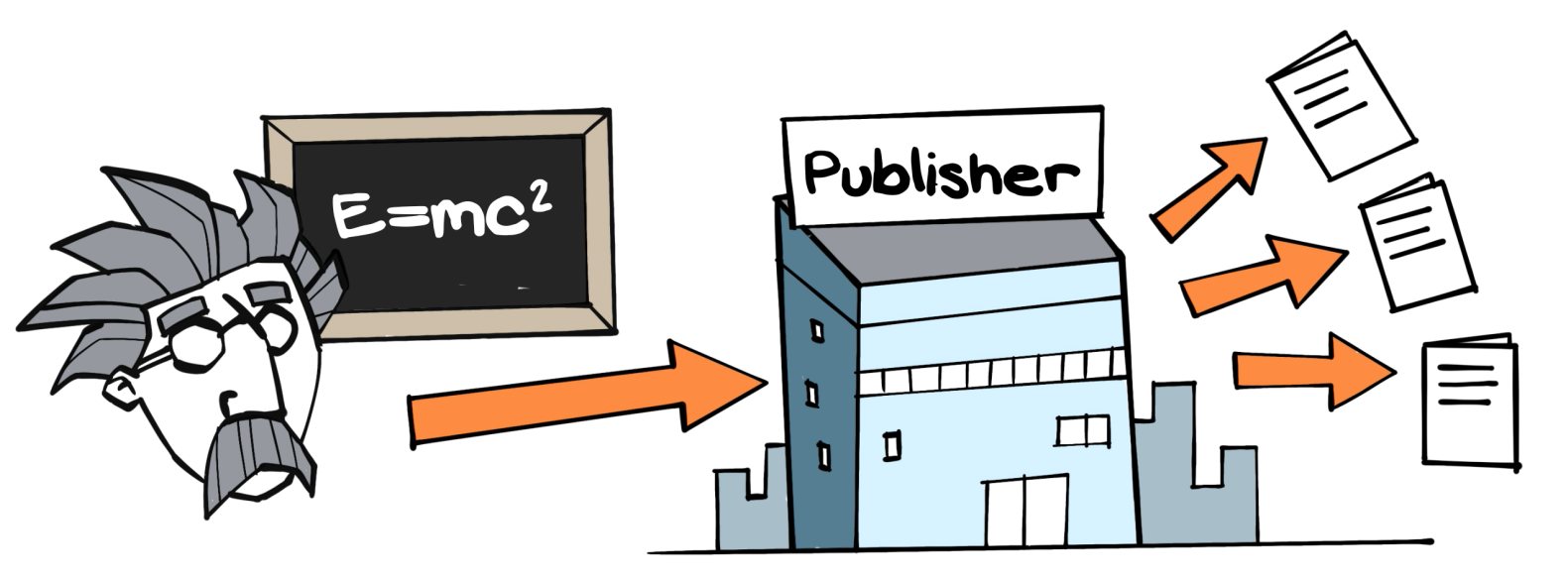Creative Commons for researchers
The simplest way for a researcher to publish research results open access is by using a Creative Commons licence (CC licence). Information about these licences and how researchers can use them are presented in this fact sheet.

Research results may comprise many types of material: an article published in a scholarly journal, a book or a chapter in a monograph, conference proceedings, a report and so on. This fact sheet focuses on articles but may, in principle, be applied to all types of research results published in Sweden.
What is a licence?
When your article is published in a subscription-based journal, you sign a publishing agreement (also known as copyright transfer agreement or author agreement) whereby you transfer your economic rights to the article exclusively in favour of the publisher. Economic rights have to do with being able to reproduce your article and dispose of it in various ways. The publisher then sells licences to those who want to read your article (university libraries, research institutes, private companies, etc.).
Licences are agreements which set out under what conditions the article may be used. For example, the licence that your library has purchased from the publisher may often stipulate that no one (including you) may publish a copy of your article on their private website.
Open Access Publishing
When your article is published open access another legal mechanism applies. It will usually be something like this (the specific details may vary from publisher to publisher): you retain your economic rights and give the publisher the non-exclusive right to publish the article under the condition that anyone may read and reuse it. For this kind of publishing the publisher uses a type of licence which is not aimed at a certain person or organisation, but at everybody. It is called an open licence. Anybody may make use of this licence without asking you or the publisher for permission.
What are Creative Commons licences?
CC licences are used in virtually every instance of open access publishing of scholarly articles. CC licences are licence templates for open licences. They were created by Creative Commons, a not-for-profit organisation whose aim is to help those who create work and want to share it. The licence templates are free to use.
The actual text in the licences is written in a simple and clear way (see for example the CC BY licence External link.). Creative Commons also provides easy-to-read summaries of each licence (see for example the CC BY-NC licence
External link.). Creative Commons also provides easy-to-read summaries of each licence (see for example the CC BY-NC licence External link.).
External link.).
Short film about Creative Commons licenses by University of Guelph McLaughlin Library External link. (CC BY-NC-SA 4.0)
External link. (CC BY-NC-SA 4.0)
Different licences
Creative Commons provides a number of licences External link. which may be suitable for scholarly publications:
External link. which may be suitable for scholarly publications:

Q&A about CC-licences
This text is published under the Creative Commons Attribution licence 4.0 External link, opens in new window. (CC BY).
External link, opens in new window. (CC BY).
This fact sheet is not intended as any kind of legal advice. If you have questions regarding copyright of your material you should talk with a lawyer within your organisation. The National Library of Sweden accepts no liability for damage that might occur as a consequence of this text.
